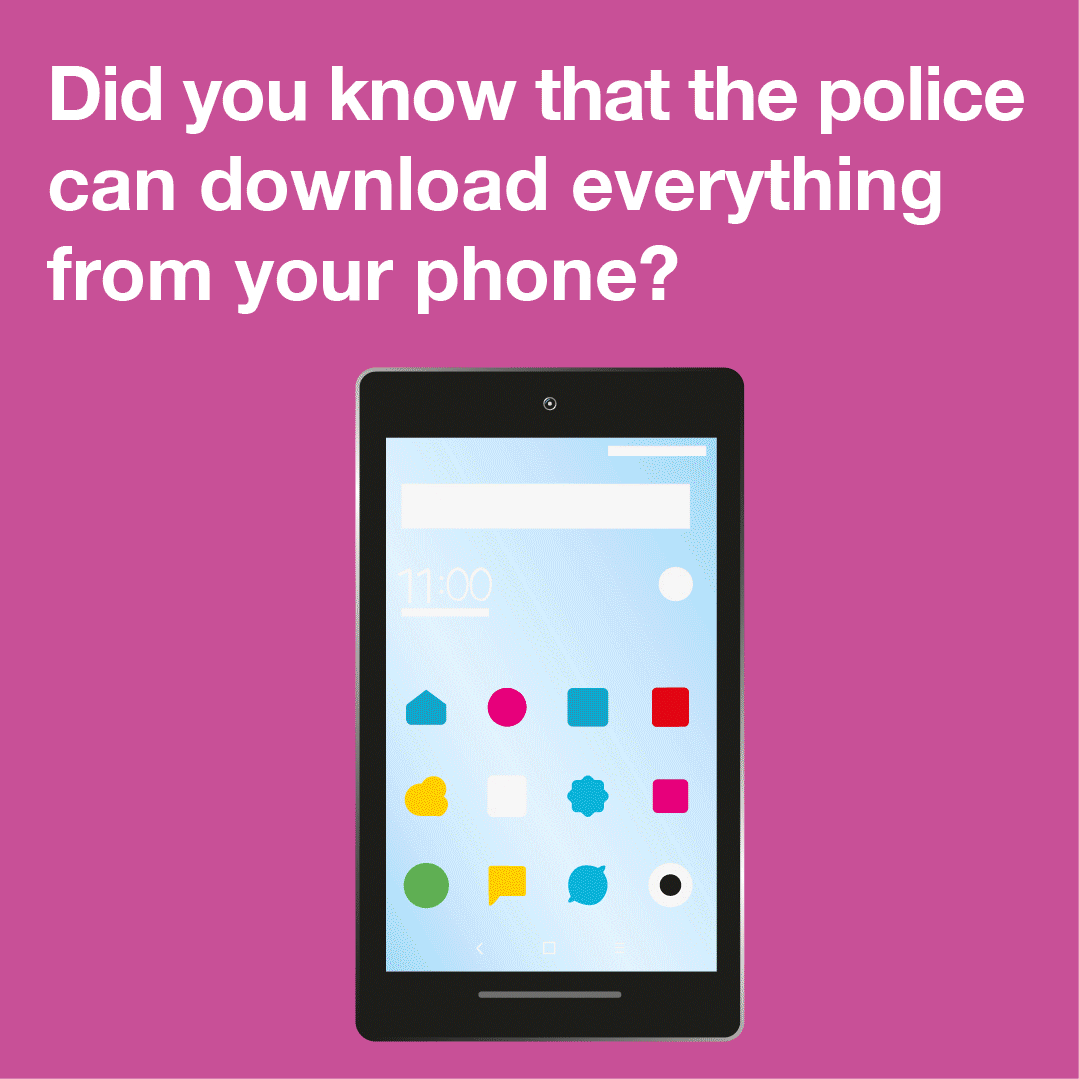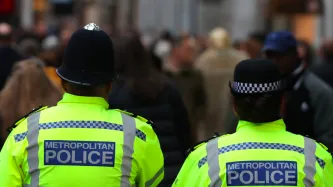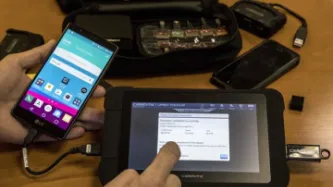Search
Content type: Examples
VeriPol, a system developed at the UK's Cardiff University, analyses the wording of victim statements in order to help police identify fake reports. By January 2019, VeriPol was in use by Spanish police, who said it helped them identify 64 false reports in one week and was successful in more than 80% of cases. The basic claim is that AI can find patterns that are common to false statements; among the giveaways experts say that false statements are likely to be shorter than genuine ones, focus…
Content type: Examples
In November 2016 the UK Information Commissioner's Office issued an enforcement notice against London's Metropolitan Police, finding that there had been multiple and serious breaches of data protection law in the organisation's use of the Gangs Violence Matrix, which it had operated since 2012. The ICO documented failures of oversight and coherent guidance, and an absence of basic data protection practices such as encryption and agreements covering data sharing. Individuals whose details are…
Content type: Examples
A 19-year-old medical student was raped and drowned in the River Dresiam in October 2016. The police identified the accused by a hair found at the scene of the crime. The data recorded by the health app on his phone helped identify his location and recorded his activities throughout the day. A portion of his activity was recorded as “climbing stairs”, which authorities were able to correlate with the time he would have dragged his victim down the river embankment, and then climbed…
Content type: Examples
The body of a 57-year-old was found in the laundry room of her home in Valley View, Adelaide, in September 2016. Her daughter-in-law who was in the house at the time of the murder claimed that she was tied up by a group of men who entered the house and managed to escape when they left. However, the data from the victim's smartwatch did not corroborate her story.The prosecution alleged that the watch had recorded data consistent with a person going into shock and losing consciousness. "The…
Content type: Examples
The 90-year old suspect when to his stepdaughter's house at San Jose, California for a brief visit. Five days later, his stepdaugter's body, Karen was discovered by a co-worker in her house with fatal lacerations on her head and neck. The police used the data recorded by the victim's Fitbit fitness tracker to determine the time of the murder. It was been reported that the Fitbit data showed that her heart rate had spiked significantly around 3:20 p.m. on September 8, when her stepfather was…
Content type: Examples
On 14 May 2018, the husband of the victim, a pharmacist living in Linthorpe in Middlesbrough, subdued his wife with insulin injection before straggling her. He then ransacked the house to make it appear as a burglary. The data recorded by the health app on the murder’s phone, showed him racing around the house as he staged the burglary, running up and down the stairs. The victim’s app showed that she remained still after her death apart from a movement of 14 paces when her husband moved her…
Content type: Examples
A man from Middletown, Ohio, was indicted in January 2017 for aggravated arson and insurance fraud for allegedly setting fire to his home in September 2016. Ohio authorities decided and succeeded to obtain a search warrant for the data recorded on the pacemaker after identifying inconsistencies in the suspect’s account of facts. Ohio authorities alleged that the data showed that the accused was awake when he claimed to be sleeping. It has been reported that a cardiologist, examining data from…
Content type: Explainer
We look at the recently published report on forensic science in the UK, highlight concerns about police not understanding new tech used to extract data from mobile phones; the risk of making incorrect inferences and the general lack of understanding about the capabilities of these tools.
The delivery of justice depends on the integrity and accuracy of evidence and trust that society has in it. So starts the damning report of the House of Lords Science and Technology Select…
Content type: Examples
In yet another murder case, a New Hampshire judge ordered Amazon to turn over two days of Amazon Echo recordings in a double murder case in November 2018.
Prosecutors believe that recordings from an Amazon Echo in the Farmington home where two women were murdered in January 2017 may yield further clues as to who their killer might be. Though the Echo was seized when police secured the crime scene, the recordings are stored on Amazon servers.
Timothy Verrill, of Dover, New Hampshire, was…
Content type: Examples
In 2015, James Bates (of Arkansas, United States) was charged with first-degree murder in the death of Victor Collins. Collins was found floating face down in Bates’ hot tub in November 2015, police said. Amazon Echo entered the murder case because someone present on the night of Collins’ death recalled hearing music streaming through the device. It was widely reported that Amazon fought the prosecution’s request to hand over data recorded by the device that night. Eventually, the argument…
Content type: Long Read
Imagine that every time you want to attend a march, religious event, political meeting, protest, or public rally, you must share deeply personal information with police and intelligence agencies, even when they have no reason to suspect you of wrongdoing.
First, you need to go to the police to register; have your photo taken for a biometric database; share the contacts of your family, friends, and colleagues; disclose your finances, health records, lifestyle choices, relationship status, and…
Content type: News & Analysis
A mobile device is a huge repository of sensitive data, which could provide a wealth of information about its owner and many others with whom the user interacts.
Companies like Cellebrite, MSAB and Oxygen Forensics sell software and hardware to law enforcement. Once your phone is connected to one of these mobile phone extraction tools, the device extracts, analyses and presents the data contained on the phone.
What data these tools can extract and what method is used will…
Content type: News & Analysis
Protest movements throughout history have helped to shape the world we know today. From the suffragettes to the civil rights movement, and to contemporary movements such as those focusing on LGBTIQ+ rights, protests have become a vital way for many, who feel powerless otherwise, to have their voices heard.
But now, making the decision to attend a protest comes with consequences that you may very well be unaware of. This is because policing and security services, always hungry in their quest to…
Content type: Long Read
(In order to click the hyperlinks in the explainer below, please download the pdf version at the bottom of the page).
Content type: News & Analysis
Planning and participating in peaceful protests against governments or non-state actors’ policies and practices requires the capacity of individuals to communicate confidentially without unlawful interference. From protests in support of LGBTI rights to protests against specific projects that undermine local communities’ wellbeing, these movements would not have been possible without the ability to exchange ideas and develop plans in private spaces.
Unlawful interference with…
Content type: Advocacy
Privacy International's submission to the Human Rights Committee on a future General Comment on Article 21 of the International Covenant on Civil and Political Rights (ICCPR).
In this submission, Privacy International aims to provide the Committee with information on how surveillance technologies are affecting the right to peaceful assembly in new and often unregulated ways.
Based on Privacy International’s research, we provide the following observations:
the relationship between right…
Content type: Explainer graphic
You can also read a more detailed explainer about mobile phone extraction here.
Content type: Long Read
The Privacy International Network is celebrating Data Privacy Week, where we’ll be talking about how trends in surveillance and data exploitation are increasingly affecting our right to privacy. Join the conversation on Twitter using #dataprivacyweek.
In the era of smart cities, the gap between the internet and the so-called physical world is closing. Gone are the days, when the internet was limited to your activities behind a desktop screen, when nobody knew you were a dog.
Today, the…
Content type: Examples
In 2018 a report from the Royal United Services Institute found that UK police were testing automated facial recognition, crime location prediction, and decision-making systems but offering little transparency in evaluating them. An automated facial recognition system trialled by the South Wales Police incorrectly identified 2,279 of 2,470 potential matches. In London, where the Metropolitan Police used facial recognition systems at the Notting Hill Carnival, in 2017 the system was wrong 98% of…
Content type: Examples
In May 2018, US Immigration and Customs Enforcement abandoned the development of machine learning software intended to mine Facebook, Twitter, and the open Internet to identify terrorists. The software, announced in the summer of 2017, had been a key element of president Donald Trump's "extreme vetting" programme and expected to flag at least 10,000 people a year for investigation. ICE decided instead to opt for a contractor who could provide training, management, and human personnel to do the…
Content type: Examples
Police investigating the 2016 rape and murder of a 19-year-old medical student were unable to search the iPhone of suspect Hussein Khavari, an Afghan refugee who declined to give them his password. The investigators gained access to the phone via a private company in Munich, and went through Apple's health app data to discern what kinds of activities Khavari participated in on the day of the murder. The app identified the bulk of his activity as "climbing stairs". An investigator of similar…
Content type: Examples
A new generation of technology has given local law enforcement officers in some parts of the US unprecedented power to peer into the lives of citizens. In Fresno, California, the police department's $600,000 Real Time Crime Center is providing a model for other such centres that have opened in New York, Houston, and Seattle over the decade between 2006 and 2016. The group of technologies used in these centres includes ShotSpotter, which uses microphones around the city to triangulate the…
Content type: Examples
In 2016 researchers in China claimed an experimental algorithm could correctly identify criminals based on images of their faces 89% of the time. The research involved training an algorithm on 90% of a dataset of 1,856 photos of Chinese males between 18 and 55 with no facial hair or markings. Among them were 730 ID pictures of convicted criminals or suspects wanted by the Ministry of Public Security. However, criminology experts warned that the results may merely reflect bias in the criminal…
Content type: Examples
A new generation of technology has given local law enforcement officers in some parts of the US unprecedented power to peer into the lives of citizens. The police department of Frenso California uses a cutting-edge Real Time Crime Center that relies on software like Beware.
As officers respond to calls, Beware automatically runs the address. The program also scoures billions of data points, including arrest reports, property records, commercial databases, deep Web searches and the man’s social…
Content type: Long Read
TO TAKE PART IN OUR CAMPAIGN, RIGHT CLICK ON THE PICTURES BELOW, SAVE THEM, AND SHARE THEM ON SOCIAL MEDIA TAGGED #SPYPOLICE
Have you ever been to a peaceful protest, demo or march? Did you assume that the police would only be identifying 'troublemakers'? How would you feel if just by turning up at a peaceful protest, the police automatically identified you, without your consent or knowledge, and stored personal information about you (including photographs of your face) in a secret database?…
Content type: Press release
We found this picture here.
Privacy International has today a issued a formal complaint to the UK Information Commissioner about the police’s use of intrusive ‘mobile phone extraction’ technology, enabling them to download all of the content from a person’s phone — without a warrant, and whether they are suspect, witness or even victim of a crime. Further complaints have also been sent to the Home Office and the Independent Office for Police Conduct, calling for urgent reforms to a totally…
Content type: News & Analysis
This op-ed originally appeared in the New Statesman.
Imagine the police searching your home without good reason, without a warrant, without your knowledge. For good measure let’s also imagine that they take a full inventory of all of your possessions and store this in a secret database indefinitely.
A peculiar feature of modernity is that what we would find dystopian in the real world is banal in our virtual world. And the irony is that this can be a greater violation of our privacy and…
Content type: News & Analysis
This op-ed originally appeared in the Huffington Post.
As technologies used by the police race ahead of outdated legislation, we are left vulnerable to potential for misuse and abuse of our data
The vast quantities of data we generate every minute of the day and how it can be exploited is challenging democratic and societal norms. The use by UK police forces of technologies that provide access to data on our phones, which document everything we do, everywhere we go, everyone we interact with…
Content type: Press release
Key points:
Privacy International have today published a report entitled 'Digital Stop and search: how the UK police can secretly download everything from your mobile phone', based on Freedom of Information requests to 47 police forces across the UK about their use of 'mobile phone extraction' technologies, which enable them to download all the content and data from a mobile phone.
Police forces across the UK are secretly downloading data from the smartphones of people across…
Content type: Report
The ‘Digital stop and search’ report examines the use of ‘mobile phone extraction’ tools by the UK police, enabling them to download all of the content and data from people’s phones.
Privacy International have exposed a potentially unlawful regime operating with UK police forces, who are confused about the legal basis for the technology they are using. The police are acting without clear safeguards for the public, and no independent oversight to identify abuse and misuse of sensitive personal…

























